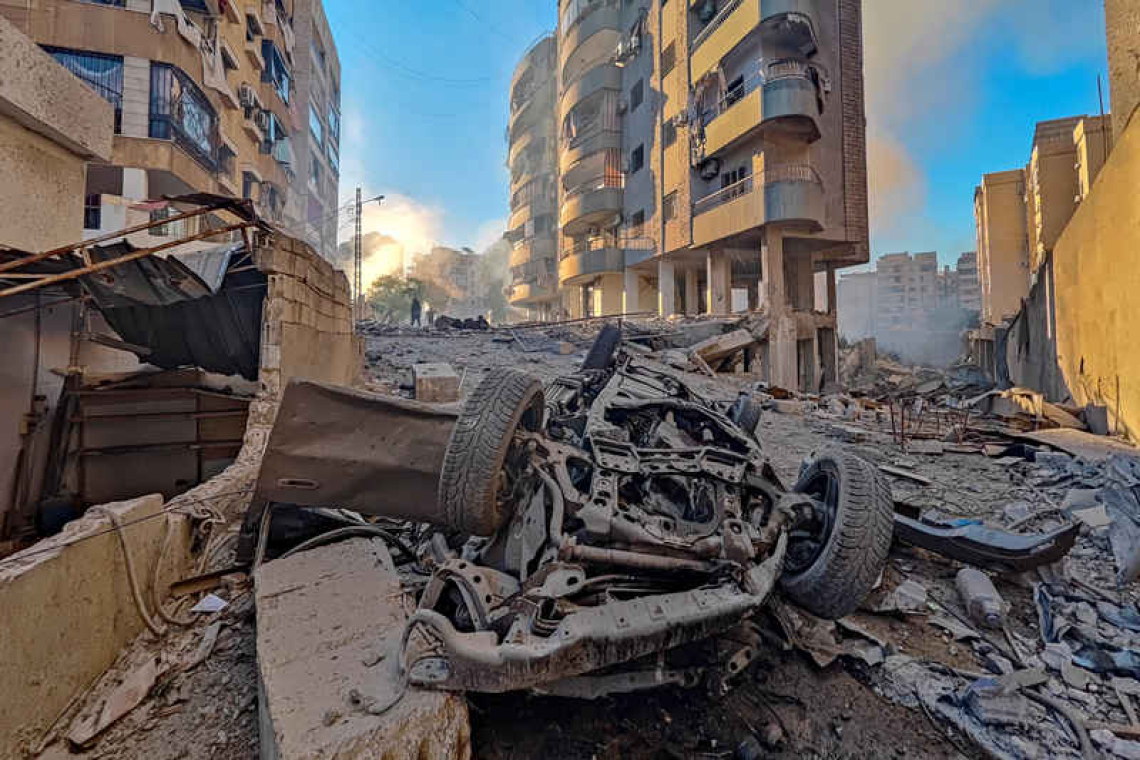DOHA/BEIRUT/PARIS--The United States does not want a protracted Israeli campaign in Lebanon, U.S. Secretary of State Antony Blinken said on Thursday, as efforts got underway to hold fresh talks over a ceasefire and hostage deal in Gaza.
A month into Israel's military onslaught against the Iranian-backed Lebanese group Hezbollah, Blinken said he hoped Iran was getting a clear message that any further attacks on Israel risked its own interests. Israel has vowed retaliation for an Iranian missile barrage on Oct. 1. Israel's military chief said an end to the conflict with Hezbollah looked possible but gave few details. Several Israeli strikes hit Beirut’s southern suburbs on Thursday evening, Reuters witnesses said. U.S. and Israeli negotiators will gather in Doha to prepare for renewed talks on a Gaza ceasefire deal which would also entail release of hostages in the Palestinian enclave, Qatar and Washington said. Israel said its Mossad intelligence agency head David Barnea will travel to Doha on Sunday to try to restart talks, and meet with CIA director William Burns and Qatar's prime minister.
"The parties will discuss the various options for starting negotiations for the release of the hostages from Hamas captivity, against the backdrop of the latest developments," Israeli Prime Minister Benjamin Netanyahu's office said. An Egyptian security delegation met with a delegation of Hamas leaders in Cairo, part of efforts to resume the Gaza ceasefire negotiations, Egypt's state-affiliated Al Qahera News TV said. Hamas senior official Osama Hamdan told Lebanese pro-Iranian TV channel Al Mayadeen there was no change in the group's position. "The hostages held by the resistance will only return by stopping the aggression and completely withdrawing," Hamdan said.
Previous attempts to reach a Gaza ceasefire and hostage release deal have failed. Blinken, who held talks with Qatar's prime minister, has been on his first trip to the region since Israel killed Hamas leader Yahya Sinwar, a mastermind of the group's Oct. 7, 2023 attack on Israel that triggered conflict across the Middle East. Washington, Israel's close ally, has expressed hope his death can provide an impetus for an end to the fighting. Israel unleashed its Lebanon offensive with the declared aim of securing the return of tens of thousands of people evacuated from homes in northern Israel during a year of cross-border hostilities with Hezbollah. Israel has used airstrikes to pound southern Lebanon, Beirut's southern suburbs and the Bekaa Valley, and sent ground forces into areas near the border.
Lebanese authorities say the campaign has killed more than 2,500 people and displaced more than 1 million people, spawning a humanitarian crisis. "As Israel conducts operations to remove the threat to Israel and its people along the border with Lebanon, we have been very clear that this cannot lead, should not lead, to a protracted campaign," Blinken said in Doha. Blinken said the U.S. was working on a diplomatic deal which would allow civilians on both sides on the border to return to their homes. Later, the head of Israel's military said an end to the conflict with Hezbollah now looked possible. "In the north (of Israel), there's a possibility of reaching a sharp conclusion. We thoroughly dismantled Hezbollah's senior chain of command," Lieutenant General Herzi Halevi said in a video statement.
Blinken said Israel should take steps to avoid civilian casualties and not endanger U.N. peacekeepers or Lebanese army troops. Earlier on Thursday, an Israeli strike killed three Lebanese soldiers as they tried to evacuate wounded people from the border village of Yater, the Lebanese army said. There was no comment from the Israeli military. The Lebanese army's deployment into the south, where Hezbollah holds sway, is seen as vital to any diplomatic resolution to the war.







